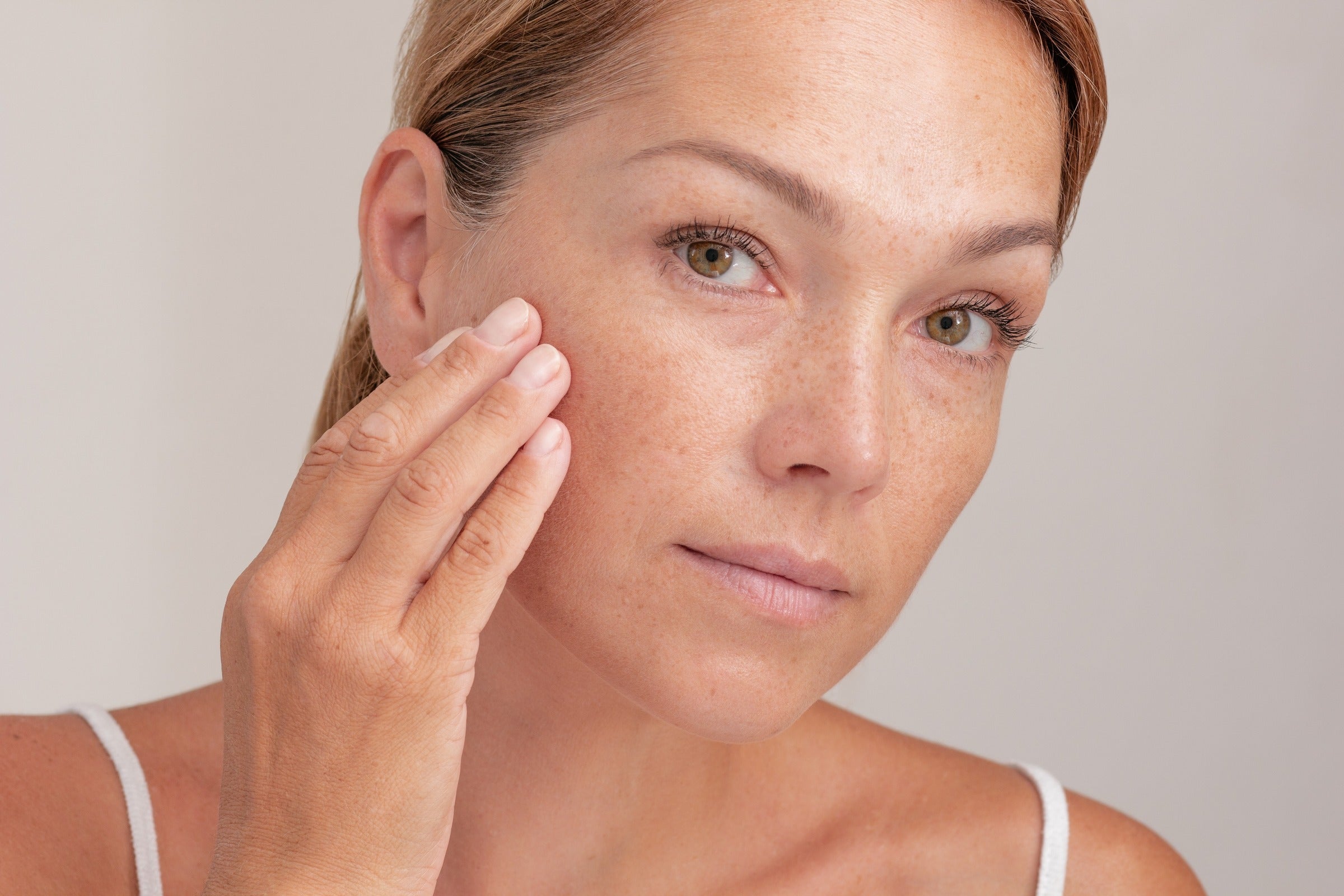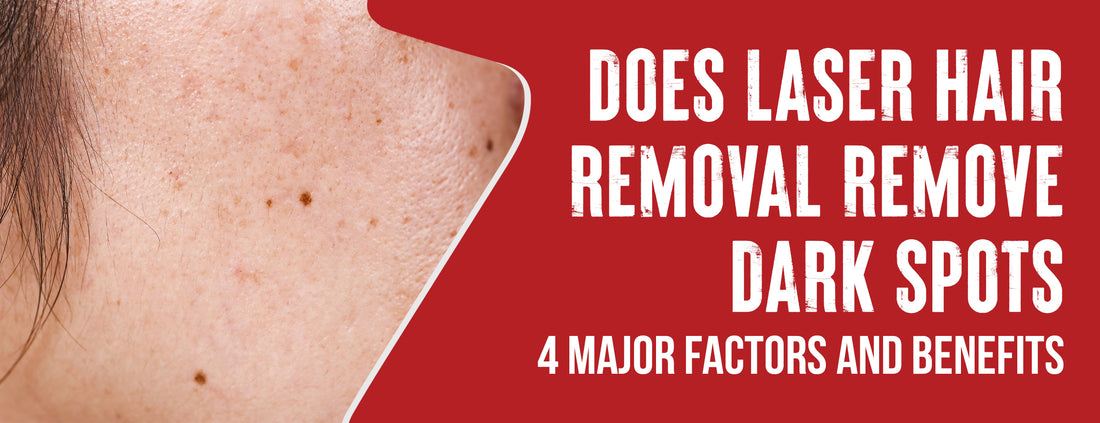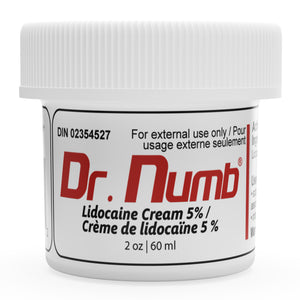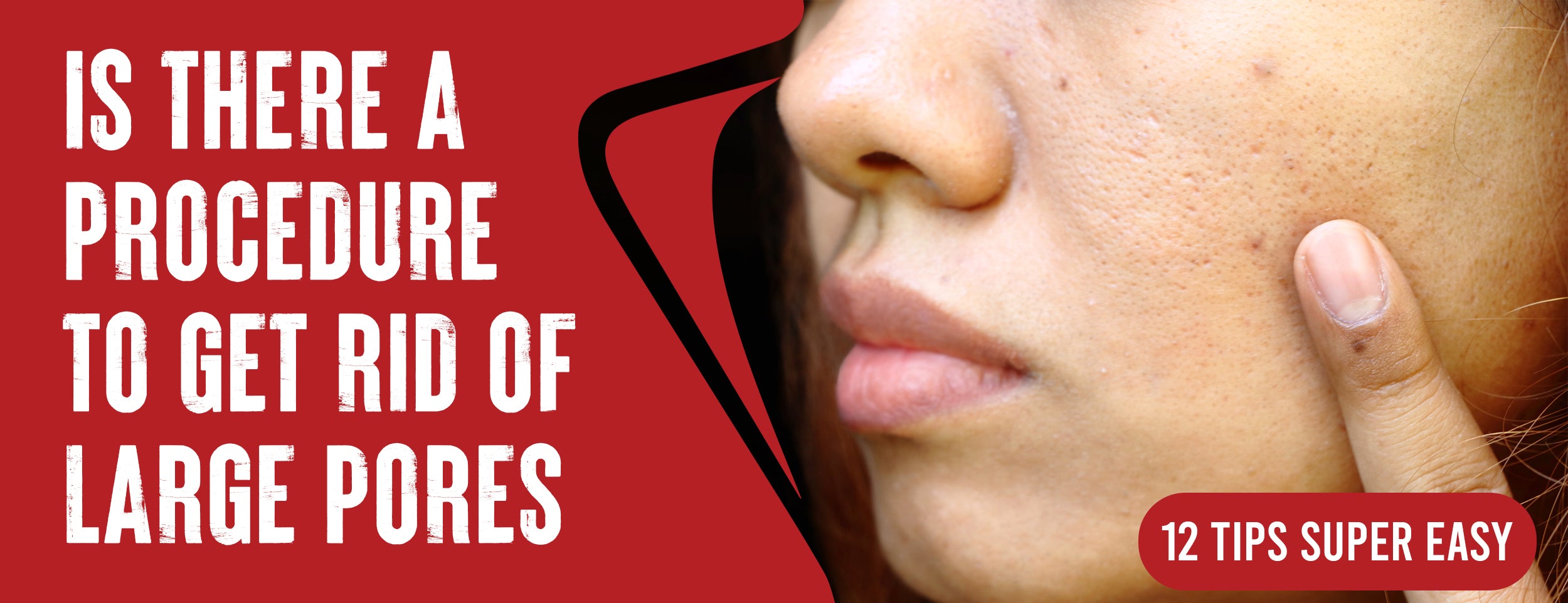Laser hair removal primarily targets and removes hair follicles, not dark spots on the skin. Bikini laser hair removal does not mainly lighten the skin in the bikini area.
It can be challenging to remove dark spots, and some people even feel self-conscious about them. Laser hair removal eliminates unwanted hair and has shown fantastic results in treating dark spots. Laser hair removal treatment has shown great potential in reducing the appearance of dark spots on the skin.
This blog post will explore whether laser hair removal can remove dark spots, how it works, and the benefits and risks of the treatment.
Does Laser Hair Removal Remove Dark Spots: 4 Major Factors

When considering laser hair removal to address dark spots, it's crucial to consider several factors. Ensuring you make an informed decision and prioritize your safety and skin health. Here are some key factors to consider:
Skin Tone and Type
The color of one's skin plays a crucial role in determining the effectiveness and safety of laser hair removal treatment for dark spots. Individuals with darker skin tones may experience hyperpigmentation or discoloration, further exacerbating the dark places.
Those with darker skin tones should opt for Nd: YAG lasers, specifically targeting melanin without affecting the surrounding tissue. Individuals with lighter skin tones can opt for diode or alexandrite lasers, which are more effective in removing hair but can also effectively treat dark spots.
Medical Conditions
Before undergoing laser hair removal treatment, it is essential to inform your technician about any medical conditions that you may have. Some medical conditions can interfere with the effectiveness of the treatment or cause complications. Some of the medical conditions that can affect the treatment include:
- Diabetes.
- Skin conditions like acne, eczema, and psoriasis.
- History of skin cancer.
- Pregnancy.
Your technician may advise you to hold off on your treatment until you have treated any medical conditions that may affect its effectiveness.
Medication and Topical Treatments
Certain medications and topical treatments can increase skin sensitivity and negatively affect the results of the laser treatment. For example, antibiotics and anti-inflammatory drugs may interact with the laser treatment, leading to undesirable skin reactions.
It is essential to consult with your dermatologist or laser technician about any medications or topical treatments you are currently using before the procedure.

Pre and Post Treatment Care
To ensure the best results and avoid complications, you need to follow specific guidelines before and after getting laser hair removal for dark spots. Proper preparation and aftercare can significantly reduce the chances of complications and improve the treatment's overall effectiveness. Here are some essential pre and post-treatment guidelines to follow:
Pre-Treatment Care:
- Avoid prolonged sun exposure and tanning beds.
- Shave the area to be treated before the appointment.
- Avoid using any perfumes, lotions, or creams on the treated area.
Post-Treatment Care:
- Apply a cooling gel or aloe vera to the treated area to reduce redness and irritation.
- Avoid direct sun exposure and use sunscreen with an SPF of 30 or higher.
- Avoid waxing, tweezing, or epilating the treated area for at least four weeks.
Laser Hair Removal and Dark Spots: 4 Benefits
Laser hair removal isn't just about bidding farewell to unwanted hair. It's a promising solution for managing dark spots. We'll explore the advantages of choosing laser hair removal for those troublesome dark spots.
Long-Lasting Results

- Sustained Dark Spot Reduction: Laser hair removal eliminates hair and targets the melanin contributing to dark spots, offering lasting results.
- Reduced Maintenance: Unlike other treatments, laser hair removal typically requires fewer follow-up sessions.
Non-Invasive and Low-Risk Treatment
- Minimal Discomfort: Many individuals find laser hair removal relatively painless, likening it to a brief rubber band snap against the skin.
- Lower Risk: When administered by skilled professionals, laser hair removal is a low-risk procedure, making it a secure choice for managing dark spots.
No Downtime Required
- Quick and Convenient: Laser hair removal sessions are brief and don't necessitate downtime, allowing you to return to your daily activities promptly.
- Ideal for Busy Lifestyles: If you lead a busy life, laser hair removal is a time-efficient option for addressing dark spots.
Improved Appearance and Skin Texture
- Smoother Skin: Alongside dark spot reduction, laser hair removal can leave your skin softer, contributing to an overall more appealing look.
- Boosted Confidence: A more transparent, even complexion can significantly enhance your self-assurance and alleviate self-consciousness about those bothersome dark spots.

Laser Hair Removal Removes Dark Spots: 3 Potential Risks
You should understand the risks and side effects of laser hair removal if you plan to use it to remove dark spots. While laser hair removal is generally considered safe and effective for most people, there are some risks you should be aware of.
Hyperpigmentation and Hypopigmentation
- Hyperpigmentation refers to the darkening of the skin, while hypopigmentation refers to the lightening of the skin.
- These conditions can occur when the laser used for hair removal damages the melanin-producing cells within the skin.
- People with darker skin tones are at a higher risk of developing hyperpigmentation, while those with lighter skin tones are more likely to experience hypopigmentation.
Skin Sensitivity and Irritation
- Laser hair removal treatment can cause redness, itchiness, and skin swelling.
- These side effects are usually temporary and subside within a few hours to a few days.
- People with sensitive skin may experience longer-lasting irritation.
A dermatologist or healthcare provider should discuss all potential risks before undergoing laser hair removal. Your doctor can assess your skin condition and determine if this treatment suits you. To reduce the risk of adverse effects, choose a reputable and experienced practitioner.
Scarring

- laser hair removal treatment can lead to scarring.
- This usually occurs when the laser damages the deeper layers of the skin, leaving behind small scars.
- People with a history of keloids or hypertrophic scars are more likely to develop faults after the treatment.
A dermatologist or healthcare provider should discuss all potential risks before undergoing laser hair removal. Your doctor can assess your skin condition and determine if this treatment suits you. To reduce the risk of adverse effects, choose a reputable and experienced practitioner.
Conclusion
Laser hair removal can be an effective solution for removing dark spots, but it is essential to consider several factors before opting for this treatment. Understanding how the laser targets melanin and the different types of lasers used is crucial. Your skin type and tone, medical conditions, medication, and topical treatments must be disclosed to your dermatologist.
Dark spot laser hair removal benefits include long-lasting results, improved appearance, and skin texture. Risks such as hyperpigmentation, hypopigmentation, skin sensitivity, and scarring may also occur. Consulting with a professional is crucial for safe and successful treatment.















![The Cost of Full Body Electrolysis: 4 Factors and 5 Costs [with 3 Alternatives]](http://drnumb.ca/cdn/shop/articles/How_Much_Is_Full_Body_Electrolysis_4_Factors_Cost_Efficiency.jpg?v=1713417391)
![The 6 factors that cause scarring [7 tips to prevent and manage it]](http://drnumb.ca/cdn/shop/articles/Does_Electrolysis_Cause_Scarring__5_Reasons_7_Prevention_Tips.jpg?v=1713357293)



